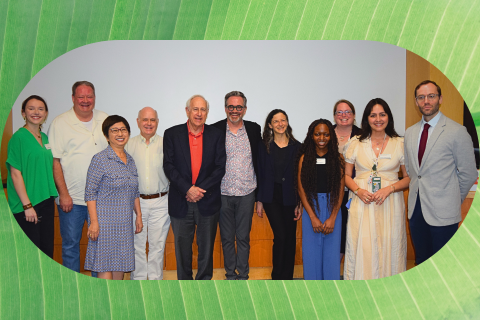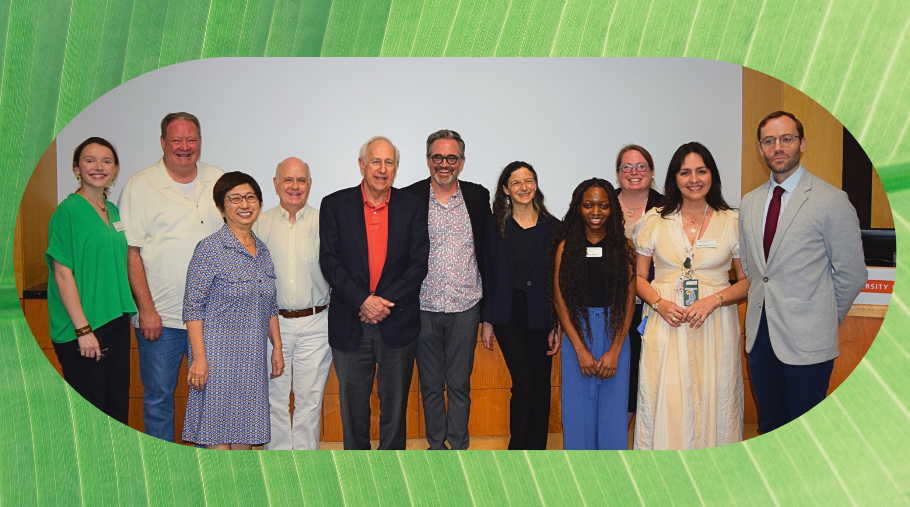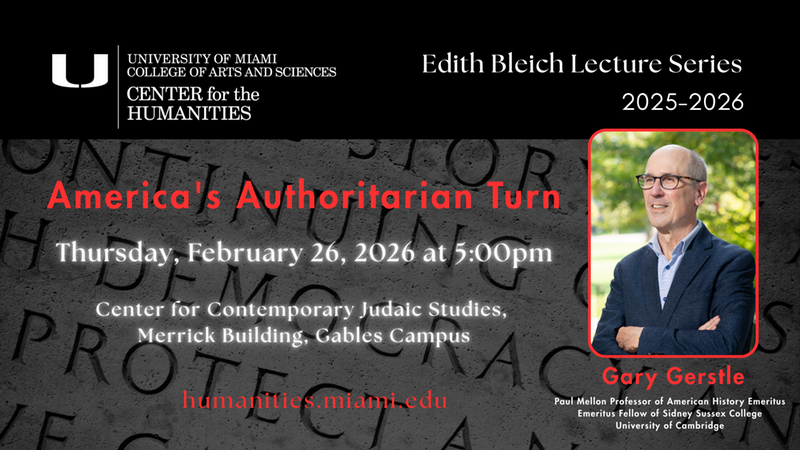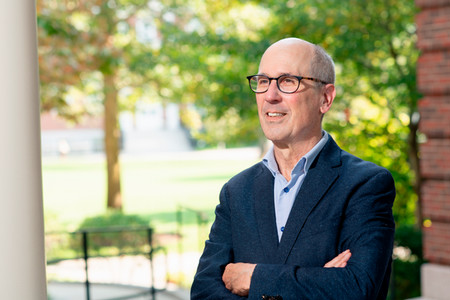The Edith Bleich Lecture Series was established by Dr. Stuart Blumin in memory of Edith Bleich. Ms. Bleich was one the University of Miami’s earliest and most devoted students who began her academic career in 1926. Each year, the Center invites a humanities scholar to speak about their research to the University of Miami and South Florida community. This event is free and open to the public.
ABOVE: Bleich Lecture (February 2025), from left to right: Sydney Shamblin Anderson (UGrow Fellow); Tim Martin (PhD Candidate in History); Mihoko Suzuko (Professor Emerita in English and Founding Director of the Center, 2009-2018); Hugh Thomas (Professor of History and Director of the Center, 2018-2023); Stuart Blumin (Professor Emeritus of History, Cornell University and Donor of the Edith Bleich Lecture Series); Phil Harling (Professor of History and Director of the Center); Sara McDougall, (featured Professor for Edith Bleich Lecture Series, 2024-2025); Atsar Williams (Student Assistant in Marketing and Graphic Design); Christina Larson (Assistant Director); Elizabeth S Hernandez (Office Manager); Charlie Bartlett (Lecturer, Department of Classics).






 Gary Gerstle is Paul Mellon Professor of American History Emeritus at the
Gary Gerstle is Paul Mellon Professor of American History Emeritus at the 